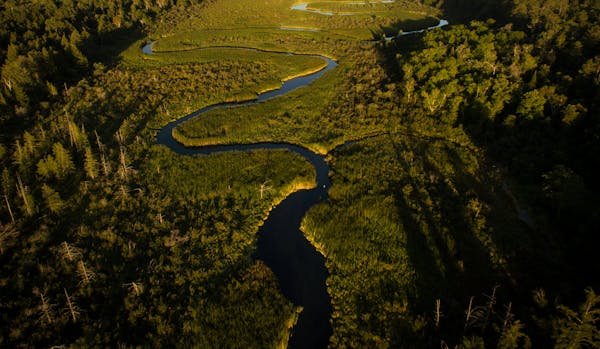In a blistering order issued Thursday, the judge in the landmark White Bear Lake case stood by her previous ruling directing the state to restrict groundwater pumping and lawn watering to protect the sensitive lake, setting up an unusual collision between the courts and the Legislature.
Ramsey County Judge Margaret Marrinan denied a request by the Minnesota Department of Natural Resources to stay her September ruling and its request for a new trial, harshly criticizing the agency for what she called a "stunning" history of failing to comply with state laws designed to protect the environment.
DNR officials had no comment on the latest ruling, though earlier they said they may ask the state Court of Appeals to reverse it.
But now the Legislature has entered the fray as well. A new bill would prevent the agency from the continuing steps it's already undertaken under Marrinan's order to impose water-use planning and restrictions on east metro communities and businesses, which they are fighting in administrative courts.
Sen. Roger Chamberlain, R-Lino Lakes, one of the bill's sponsors, said Marrinan's decision "made things worse," and that it stops citizens and local communities from managing their water.
The judge "has stepped into the shoes of the legislative and executive branches of government, and citizens have no recourse," Chamberlain said. "She is in conflict with us."
If the bill were to become law, it's not clear which directive the DNR would follow, said Barbara Naramore, assistant DNR commissioner.
"We would be in an undeniably uncomfortable position," she said.
But Shannon Whitaker, one of the plaintiffs in the case who testified against the bill this week, said that not only would the bill stall critical progress in protecting the lake, its introduction ignores the authority of the courts and the separation of powers in government.
"Is this a precedent that people want?" she said. "That one body of government can supersede another?"
A long, intense battle
The 2013 lawsuit against the DNR was filed by residents of White Bear Lake, a northeast metro summertime landmark, after the lake shrank before their eyes, leaving docks and boats high and dry. It dropped as low as 919 feet above sea level, recently recovering to 923 feet only after heavy rainfalls.
The real long-term problem, they said, is excessive demand for groundwater among the growing communities around the lake, coupled with the DNR's reluctance to deny permits for large-volume pumping, which was draining an aquifer that sustains the lake and supplies drinking water to many communities.
Much of the case relied on a study by the U.S. Geological Survey that found that many lakes in the region are closely tied to groundwater flow and extremely sensitive to withdrawal.
After a monthlong trial, Marrinan agreed. She said that the evidence showed that the DNR had known for many years that groundwater use in the area was not sustainable, but refused to limit groundwater permitting or impose water restrictions.
In her decision, she outlined the agency's failure to comply with state environmental laws, and what she called its betrayal of the "public trust doctrine," the legal obligation of the state to protect natural resources for its citizens. She ordered the state to restrict groundwater pumping unless sustainable levels could be established, and to issue lawn-watering bans when the lake level is below 923.5 feet above sea level. Lawn water, a nonessential use, accounts for 30 percent of the annual water use in the northeast metro area, she said.
DNR officials said the opinion was unreasonable, and disagreed with Marrinan's interpretation of the science. They also said it went beyond what is necessary to ensure sustainability, and added that the DNR was in the process of developing a regional water use plan. They asked her to stay the order, which she declined to do Thursday, saying that the inconveniences it presents are minor and manageable.
"On the one hand stands the demonstrated, irreparable, disproportionate injury caused by the permanent depletion and impairment of …(a) public resource," she wrote. "On the other is the … temporary inconvenience to those who mindlessly waste these assets on nonessential uses."
The DNR, she added, "failed to enforce requirements it has been under an obligation to enforce for years."
Josephine Marcotty • 612-673-7394

Want to share info with the Star Tribune? How to do it securely

'Safe recovery sites' would offer syringes, naloxone and more to people using drugs. The plan could be in peril.
New Minnesota GOP leaders seek peace with party's anti-establishment wing

Who is Republican Lisa Demuth, Minnesota's first House speaker of color?

